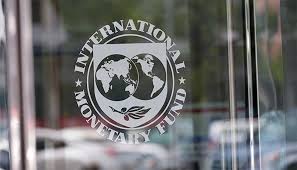An International Monetary Fund (IMF) staff team led by Carlo Sdralevich that visited the country last week to assess the economic situation of the country says the Fund will continue to monitor the challenging economic and social situation in Ghana closely in the coming weeks and engage authorities in the formulation of Enhanced Domestic Programme that could be supported by a Fund arrangement.
This will however require broader stakeholders’ consultation.
In a statement to conclude its seven days working visit to assess the current economic situation and discuss the broad lines of the government’s Enhanced Domestic Programme that could be supported by an IMF lending arrangement, Mr. Sdralevich however reaffirmed the Fund’s commitment to support Ghana at this difficult time.
“We reaffirm our commitment to support Ghana at this difficult time, consistent with the IMF’s policies”.
He stressed that Ghana is facing a challenging economic and social situation amid an increasingly difficult global environment with the fiscal and debt situation severely worsened following the COVID-19 pandemic.
At the same time, investors’ concerns have triggered credit rating downgrades, capital outflows, loss of external market access, and rising domestic borrowing costs.
“In addition, the global economic shock caused by the war in Ukraine is hitting Ghana at a time when the country is still recovering from the Covid-19 pandemic shock and with limited room for maneuver. These adverse developments have contributed to slowing economic growth, accumulation of unpaid bills, a large exchange rate depreciation, and a surge in inflation”.
The IMF team held initial discussions on a comprehensive reform package to restore macroeconomic stability and anchor debt sustainability.
The team made progress in assessing the economic situation and identifying policy priorities in the near term. The discussions focused on improving fiscal balances in a sustainable way while protecting the vulnerable and poor; ensuring credibility of the monetary policy and exchange rate regimes; preserving financial sector stability; and designing reforms to enhance growth, create jobs, and strengthen governance.
The team met with Vice President Bawumia, Finance Minister, Ken Ofori-Atta, and Governor of the Bank of Ghana, Dr. Ernest Addison. They also met with the Parliament’s Finance Committee, civil society organizations, and development partners, including UNICEF and the World Bank to engage on social spending.
The staff expressed their gratitude to the authorities, civil society, and development partners for their constructive engagement and support during the mission.
Latest Stories
-
Why the Russia-Ukraine War should concern every African
12 minutes -
‘We are not selling ECG’ – John Jinapor dispels privatisation fears, explains concession model
36 minutes -
Bishop T.D. Jakes hands over church leadership to daughter, son-in-law
41 minutes -
‘I won’t fall with you’ – John Jinapor says he’ll fire non-performing ECG CEO to save himself
1 hour -
Defence Minister commissions refurbished medical services headquarters at Burma Camp
1 hour -
Prof Kwesi Yankah: Kofi Akpabli wounds my pride as a Ghanaian
2 hours -
King sends heartfelt message to fellow cancer patients
2 hours -
Meta warns of ‘worse’ experience for European users
2 hours -
Trump tells business chiefs he needs ‘little bit of time’ as US economy shrinks
2 hours -
‘When the lights go off, people must move’ – Energy Minister warns ECG over ‘unacceptable’ delays
3 hours -
Energy Minister faults ECGs communication breakdown, calls for overhaul in customer service
3 hours -
‘We inherited a crisis’ – Energy Minister pins load shedding on NPP administration
4 hours -
‘I know it’s not easy, but I’m not here to complain’ – Energy Minister vows to fix power woes
4 hours -
‘When the lights go out, so does public patience’ – Energy Minister admits fault, promises fix
5 hours -
Youth urged to take advantage of opportunities in rice value chain
5 hours

